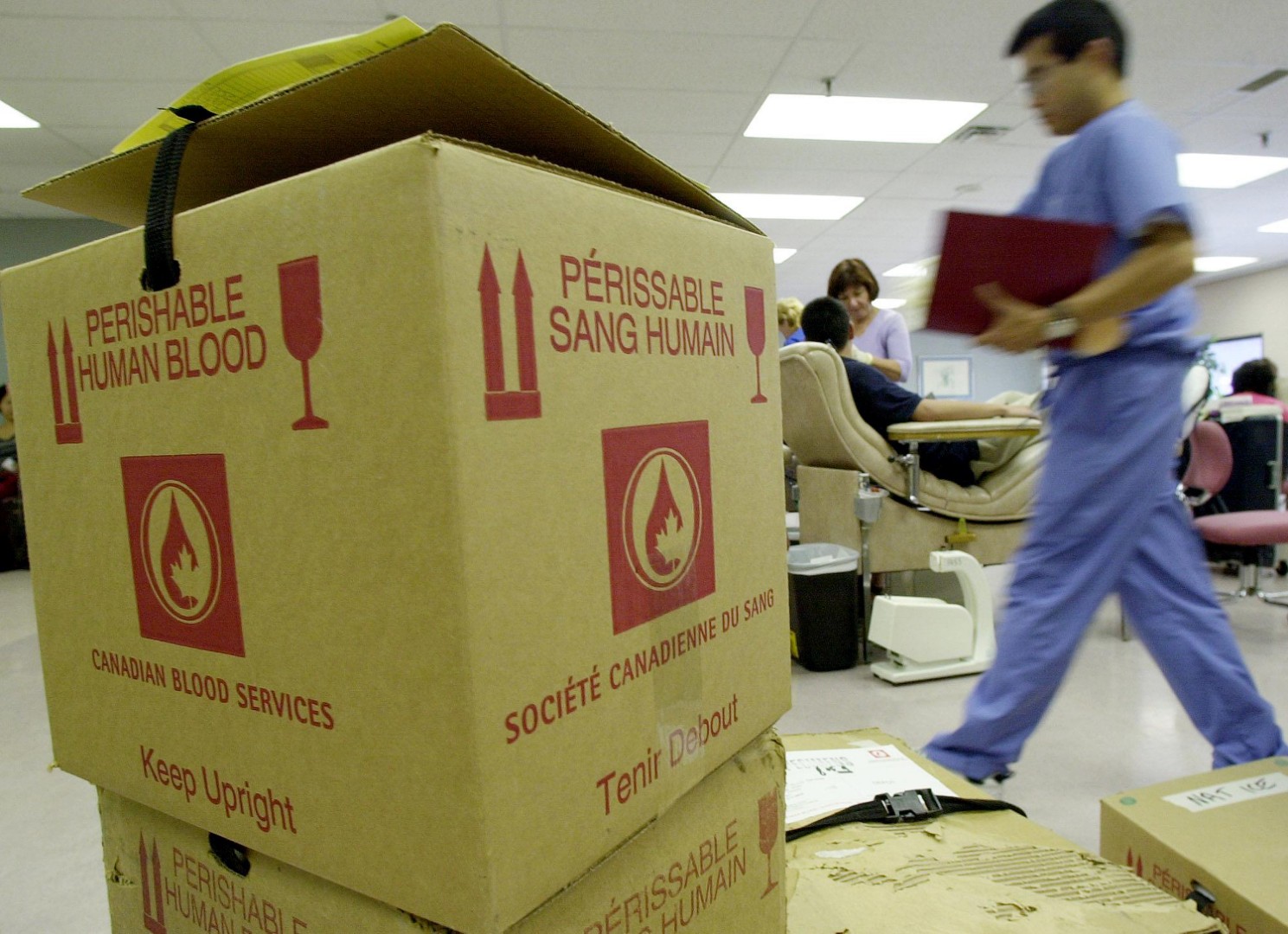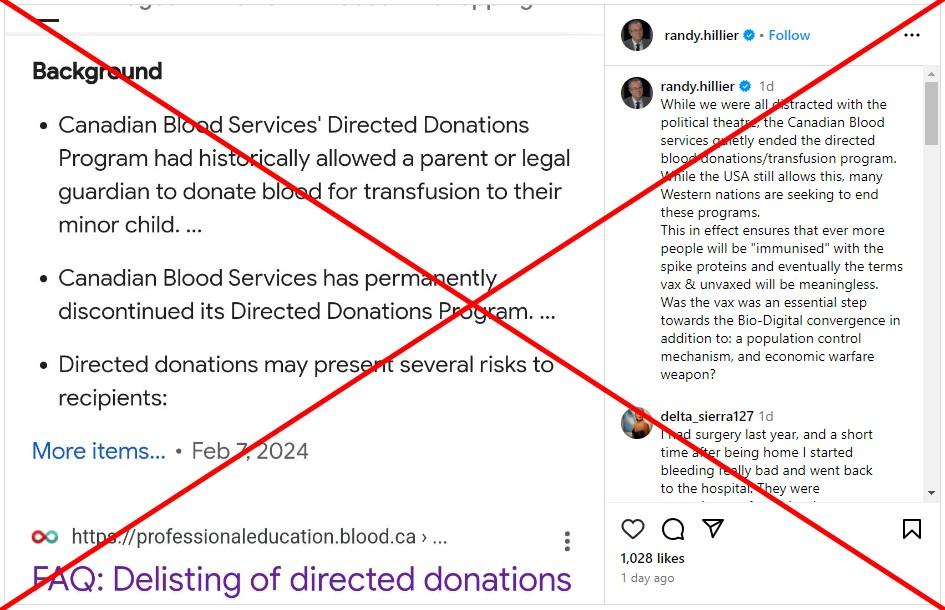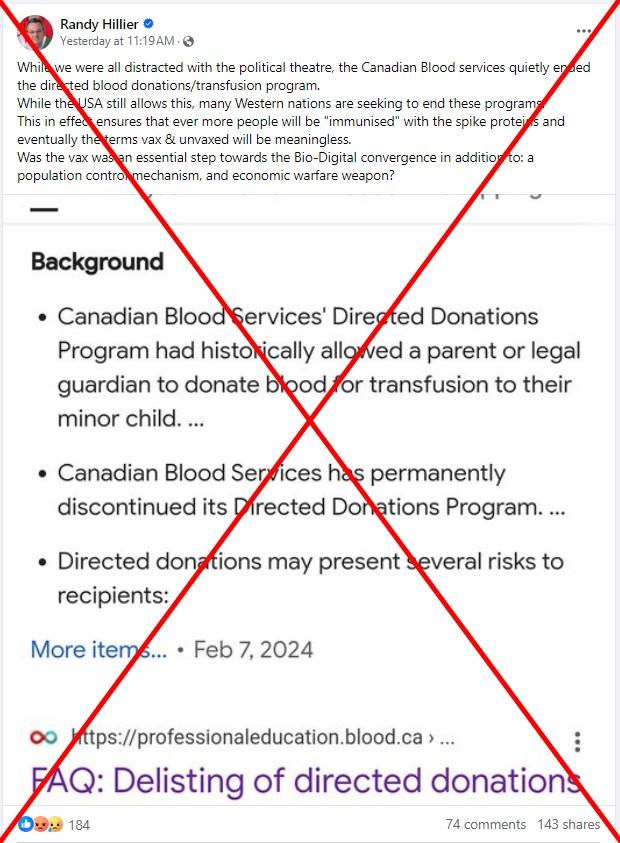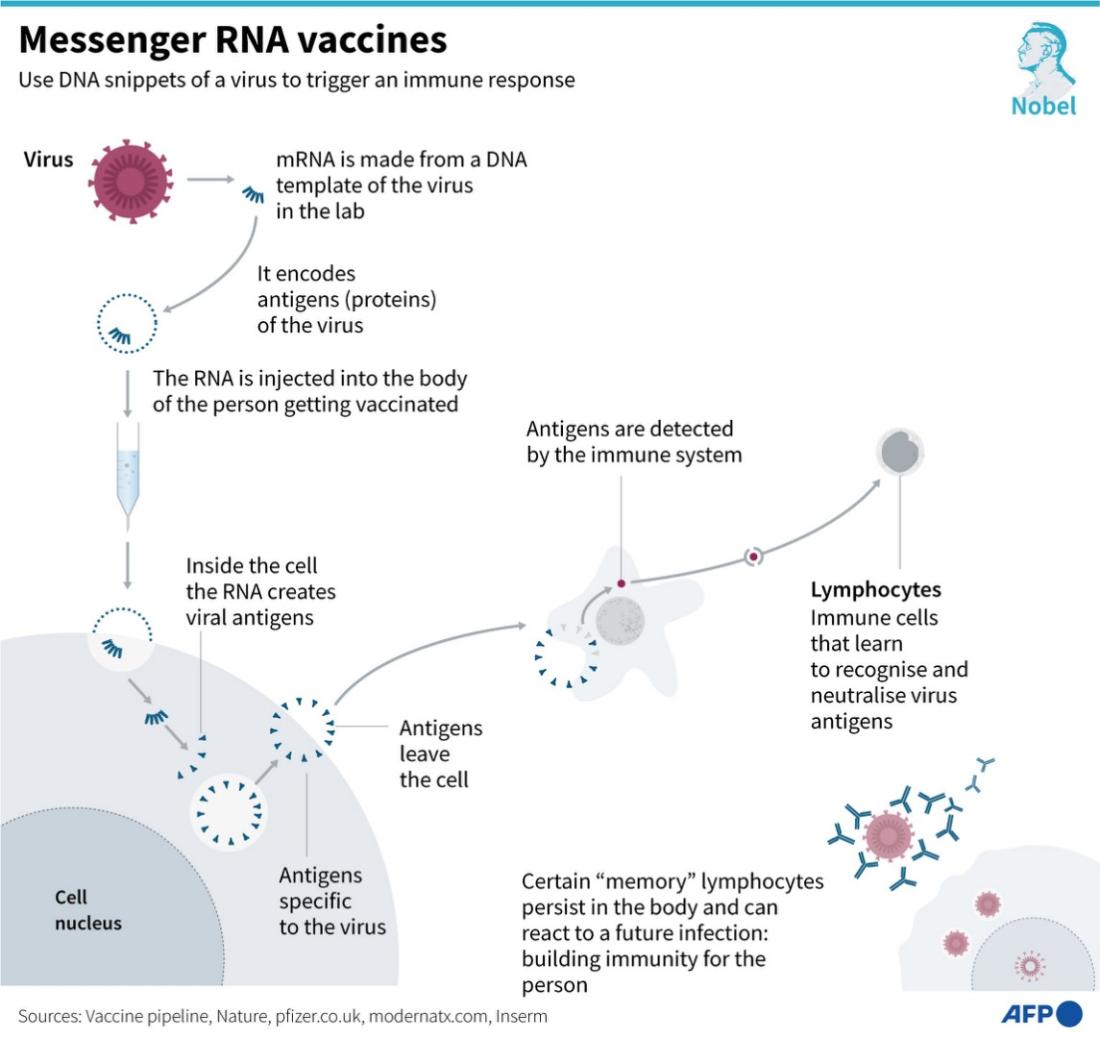
Blood donation rule change prompts misinformation in Canada
- This article is more than one year old.
- Published on March 28, 2024 at 21:32
- 3 min read
- By Gwen Roley, AFP Canada
"This in effect ensures that ever more people will be 'immunised' with the spike proteins and eventually the terms vax & unvaxed will be meaningless," says Randy Hillier, a former member of the Provincial Parliament of Ontario (archived here), in a March 21, 2024 Facebook post.
Hillier, whom AFP has previously fact-checked for spreading misinformation, shared the same claim on Instagram, saying CBS eliminated the option of blood transfusions from unvaccinated people by cancelling directed donations between parents and children.
The former politician's posts accumulated hundreds of likes, while other Facebook users shared the same allegation.


The posts are the latest to spread unfounded claims that receiving blood from people inoculated against the coronavirus will "contaminate" or forcibly vaccinate the body.
"If you give blood from a vaccinated donor to an unvaccinated person, the person receiving the transfusion does not become vaccinated," Katrine Wallace, an epidemiologist and assistant professor at the University of Illinois Chicago (archived here), told AFP in 2023.
Vaccination status is also unrelated to the blood donation changes in Canada.
CBS said in a February 7, 2024 statement (archived here) that its decision to permanently discontinue donations from parents to minor children was due in part to reduced demand. No directed donations have been collected since 2019 -- prior to the introduction of Covid-19 vaccines.
The nonprofit also pointed to declining clinical effectiveness.
"Directed donations carry heightened risks to both recipients and donors compared to allogeneic blood donation and are not recommended by current guidelines," the statement says.
According to CBS, patients with "rare blood needs" can still participate in compatible donor programs, which may recruit family members.
Vaccines and blood donation
CBS refutes on its website (archived here) claims that receiving blood from donors inoculated against Covid-19 could be harmful to unvaccinated people. AFP previously debunked claims that messenger ribonucleic (mRNA) shots "tainted" the blood supply in Australia.
Caroline Quach-Thanh, a professor of microbiology and immunology at the Université de Montréal (archived here), said neither mRNA nor the resulting coronavirus spike proteins linger long after vaccination. The mRNA disintegrates once it triggers the reaction.
"So within hours -- one or two days max -- that mRNA will disappear, and there's no way for it to integrate into your genome," Quach-Thanh said on March 25.
Spike proteins will stay in the body longer than mRNA (archived here), but she said they are no longer present after two weeks.

It is possible for blood transfusion recipients to get antibodies from someone previously infected with a virus, but that is not the same as being vaccinated.
"Those antibodies usually have a very short half-life -- and within two to three weeks, they are going to be gone," Quach-Thanh said.
AFP previously debunked claims that the American Red Cross stopped accepting blood from inoculated individuals. The narrative misrepresented a policy, based on guidance from the US Food and Drug Administration (archived here and here), that requires a waiting period for blood donation after receiving certain shots.
Similarly, CBS lists deferral periods for recipients of certain vaccines in Canada (archived here), specifically recommending vigilance for shots derived from live-attenuated viruses (archived here).
However, there is no required wait time after receiving any of the Covid-19 jabs approved in the country.
Risks of directed donation
Héma-Québec, CBS's analogue in Canada's French-speaking province, has also discontinued its directed donations program.
Spokeswoman Josée Larivée said in a March 26 email that the change was not motivated by a desire to "immunize" the population and that such claims are scientifically unfounded.
She said directed donations come with elevated associated risks, such as transfusion-associated graft-versus-host disease (archived here) and transfusion-related acute lung injury (archived here).
"There is no evidence that directed donation is safer than allogeneic donations," Larivée said.
Directed donations also cause logistical challenges because it is often difficult to assess transfusion needs and donor eligibility quickly, she added.
As with CBS, Héma-Québec ended directed donations due to a lack of interest in the program. Larivée said Héma-Québec had recorded only four such collections between 2021 and 2022, before the program ended in July 2023.
Read more of AFP's reporting on misinformation in Canada here.
Copyright © AFP 2017-2026. Any commercial use of this content requires a subscription. Click here to find out more.
Is there content that you would like AFP to fact-check? Get in touch.
Contact us
